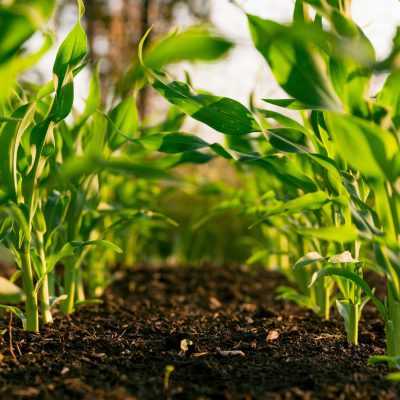Project Nutrition+
Project Nutrition+ is a community level process aimed at improving the wellbeing of families, by linking sustainable farming practices with nutrition education, and other health outcomes at household levels.
Nutrition+ focuses on families most vulnerable to malnutrition and poverty, with children and mothers as the main target beneficiaries. Nutrition+ responds to the state of undernourishment in the East Africa Region, where close to 30% of the children are stunted. It takes a comprehensive response that involves faith communities, state institutions, cultural institutions, academic institutions and the private sector.
Nutrition+ is a partnership project between the OAIC (Organisation of African Instituted Churches) and Arigatou International-End Child Poverty.


How the Project Nutrition+ works
Project Nutrition+ has several integrated steps that make it a successful, comprehensive community process. This process is described here.
Engaging with multi-faith processes on food security and nutrition
Working with health workers, especially in public health care systems and faith institutions, to identify the undernourished children and mothers, and those at the risk of falling into malnutrition. The process also involves tracking the changes in the nutrition status of mothers, children and their families.
This involves farming for nutritional outcomes, including enabling families to access quality seeds for crops that provide adequate nutrition. These crops include fruits, vegetables and legumes, while prioritising fast-growing vegetables that can be harvested within 3 weeks and grown even in small spaces, such as in informal settlements In urban centres.
This involves providing on-going support to parents and caregivers to comply with the advised immunisation schedules for children, and supporting mothers to comply with the advised schedules for antenatal and postnatal clinics
This involves social accountability that promotes a multi-faith approach to engaging public institutions for responsiveness in the delivery of public services, health care especially for mothers and children, and basic education, through advocacy processes
Our Impact
Project Nutrition+ spearheaded by the Organisation of African Instituted Churches (OAIC), with support from End Child Poverty, was implemented in 3 countries in the East Africa Region – Kenya, Tanzania and Uganda.
Nutrition+ provided nutrition education to communities, through clergy and farmers trained in theology, and climate-smart, sustainable agricultural practices. The farmers and their communities were mobilised around church congregations and farmer-groups, with local church leaders engaged in mobilisation and training as well. The Nutrition+ Project was complementary to the OAIC initiatives to enhance the livelihoods of smallholder farmers and their rural communities. The Nutrition+ Project encouraged communities to incorporate livelihood training in their work, thus creating project sustainability. Furthermore, communities established seed banks and farmer resource learning centres (through demonstration farms), as well as reached out to families with children under 5 years, with support to fight malnutrition.
276 Clergy and Farmers Trained
In the period of implementation
515 Households
Reached through the integrated project activities
120 demonstration farms
Set up
18 seed banks
Established, following the harvest from the respective crops – including cassava, sweet potatoes, cow peas, soya peas, beans, green grams, bananas, millet and sorghum.
Our Impact
Project Nutrition+ spearheaded by the Organisation of African Instituted Churches (OAIC), with support from End Child Poverty, was implemented in 3 countries in the East Africa Region – Kenya, Tanzania and Uganda.
Nutrition+ provided nutrition education to communities, through clergy and farmers trained in theology, and climate-smart, sustainable agricultural practices. The farmers and their communities were mobilised around church congregations and farmer-groups, with local church leaders engaged in mobilisation and training as well. The Nutrition+ Project was complementary to the OAIC initiatives to enhance the livelihoods of smallholder farmers and their rural communities. The Nutrition+ Project encouraged communities to incorporate livelihood training in their work, thus creating project sustainability. Furthermore, communities established seed banks and farmer resource learning centres (through demonstration farms), as well as reached out to families with children under 5 years, with support to fight malnutrition.
In the period of implementation, the Nutrition+ resulted in 276 clergy and farmers were trained, and in turn, they reached 515 households through the integrated project activities. The Organisation of African Instituted Churches (OAIC) further facilitated collaboration among these groups, agricultural research institutes, and their respective local government officials, including those from the Ministries of Agriculture. Through this, the different clusters of farmers and 230 households received seeds to grow climate resilient crops, and support to establish demonstration farms. A total of 120 demonstration farms were set up, and 18 seed banks established, following the harvest from the respective crops – including cassava, sweet potatoes, cow peas, soya peas, beans, green grams, bananas, millet and sorghum. In addition, the Nutrition+ Project gave opportunity for households to supplement their nutrition affordably and have income from the sale of vegetables from their small-scale kitchen/ vegetable gardens. Overall, Nutrition+ provides a successful model that can be replicated and scaled-up in other regions.